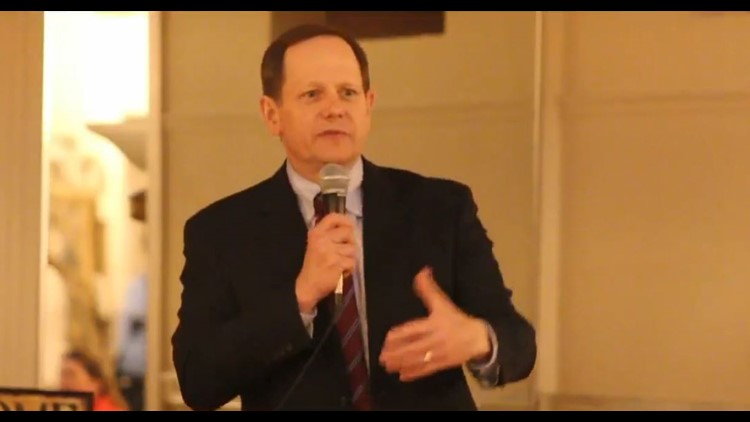Byers' Beat is a weekly column written by the I-Team's Christine Byers, who has covered public safety in St. Louis for 15 years. It is intended to offer context and analysis to the week's biggest crime stories and public safety issues.
ST. LOUIS — Early in his administration, former St. Louis Mayor Francis Slay got a taste of the autonomy of the city’s Personnel Division.
He said he was given retirement papers to sign for an employee.
The next thing he knew, a reporter was showing up at his door to confront him about allowing that employee to retire from one city department, start getting her pension while taking another job with a different city department.
“That wasn’t what I signed,” he told me during an interview Friday. "She was double-dipping."
He said there was a police investigation, and the document he signed had been altered after he signed it.
“It was so obvious, it was whited out in seven different places,” he said.
Slay said the police sent a case to the Circuit Attorney’s office, but prosecutors refused to issue charges, so Slay didn’t want to name names.
The employee continued to work for the city and collect a much higher paycheck.
“That had to come through the personnel division, and there wasn’t anything I or anybody else could do about it,” Slay recalled.
Slay served as the city’s mayor from 2001 to 2017.
Slay is also the last mayor who got to appoint a Director of Personnel.
In 2004, Slay appointed Richard Frank to the position – making Frank only the fourth person to hold the title in the city since 1942.
I asked him about his thoughts on a recent controversial rule change allowing the mayor’s office to have power over the Personnel Division.
As I reported in this column earlier this week, even though the mayor has the power to appoint the personnel director, the mayor, or anyone for that matter, doesn’t have the power to remove them.
They can only be removed for neglecting their duties or breaking the law.
“It’s designed that way to keep the politics out of it, and prevent any corruption or patronage,” Slay said. “But my question is, who keeps the politics out of the personnel division?
“They have politics within their own department. At times, it’s out of control.”
Frank retired late last year due to medical reasons.
Per the city’s charter, an interim director was appointed from within to preserve the autonomy while the mayor searches for a permanent hire.
Then, earlier this month, the Civil Service Commission changed the rules to allow Mayor Tishaura Jones to appoint an interim director of her choosing without any minimum qualifications.
Her pick is a former Laclede Gas executive named John Moten Jr. who is not a city resident.
Slay said he did not want to comment on whether he thinks the recent rule change is the best way to reform the personnel division, or comment on the current administration.
"It's easy to sit back when you're not there and comment or be critical, and I'm not there," Slay said.
He only wanted to share what happened during his tenure.
He said things got so tense between him and Frank at times, Frank refused to meet with Slay without his attorney present.
“And I appointed him,” Slay noted.
The city’s three biggest unions, the carpenters, firefighters and police, are gearing up for a legal fight to oppose the rule change.
They say too much is at stake, including a search for a new police chief, the consolidation of dispatching centers and contract negotiations, to let the mayor's office have influence over.
Firefighters local 73 attorney Emily Perez said her clients have also had frustrations and challenges with the personnel division through the years.
Still, keeping the mayor’s office out of hiring, firing, promotions, pay and contract negotiations is more important to the firefighters union than those challenges, she said.
Slay wouldn’t say whether he agreed.



